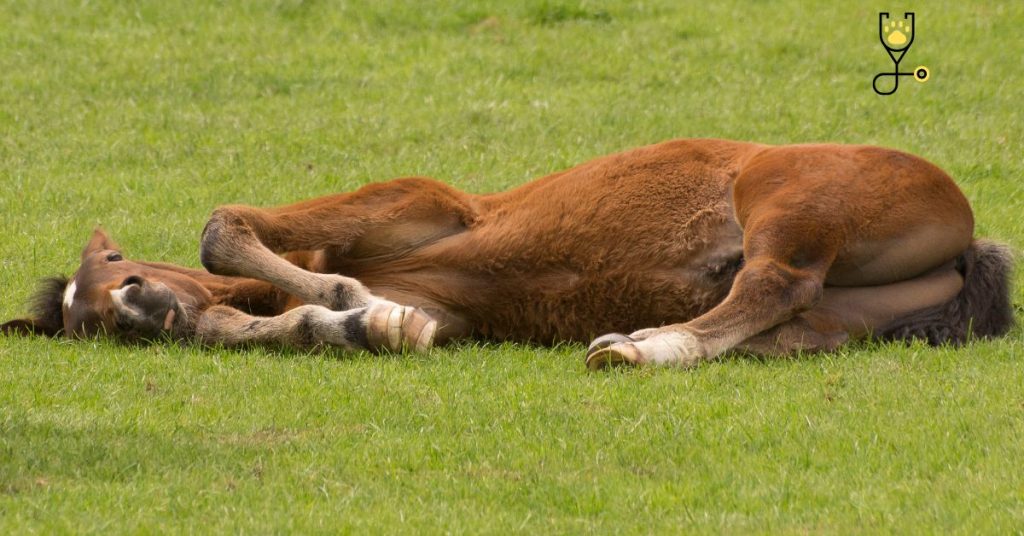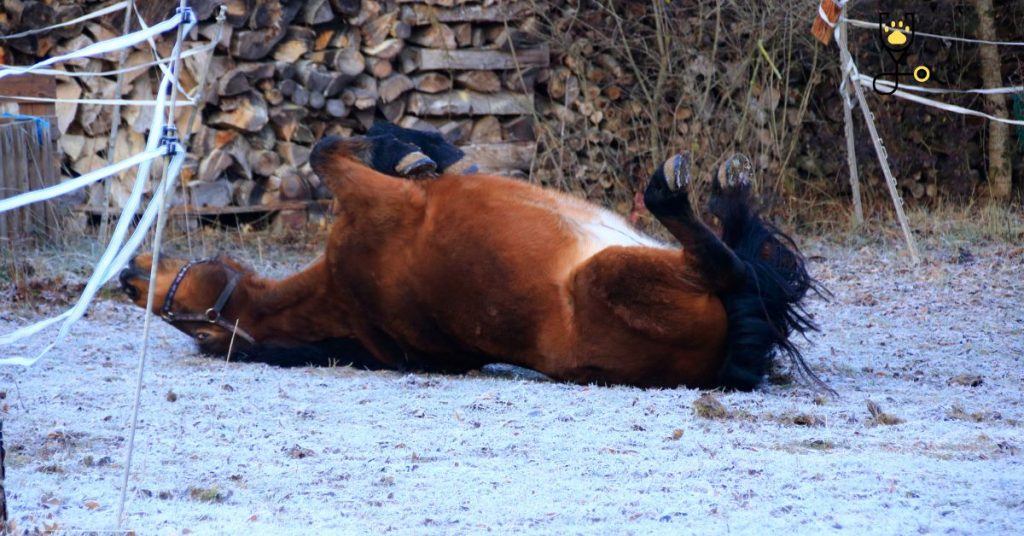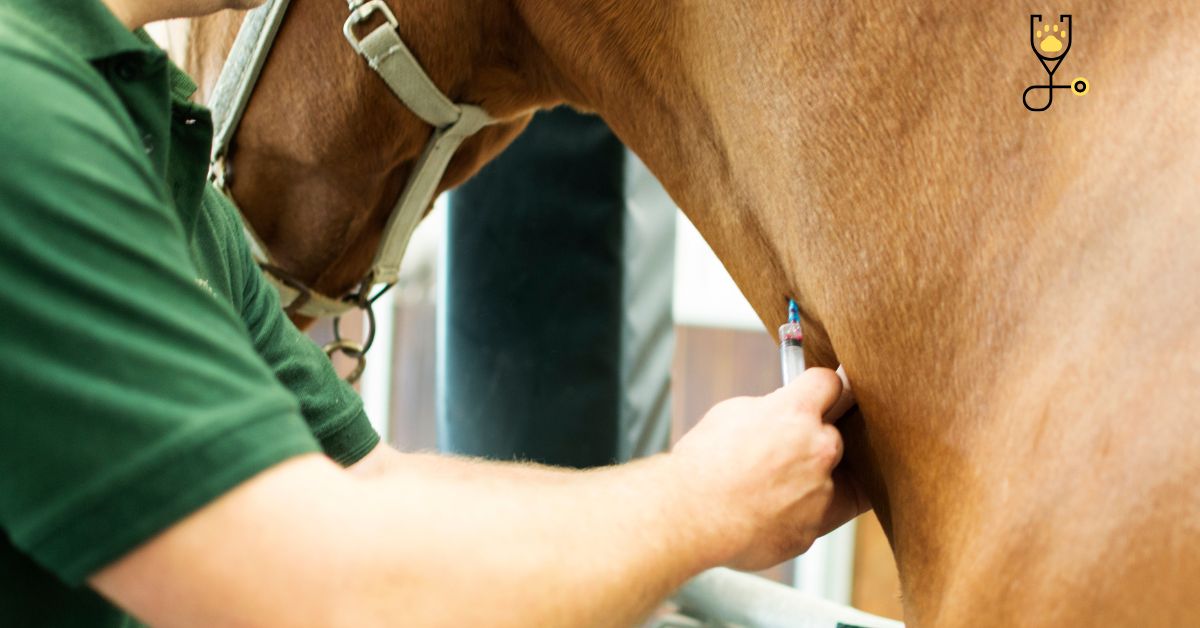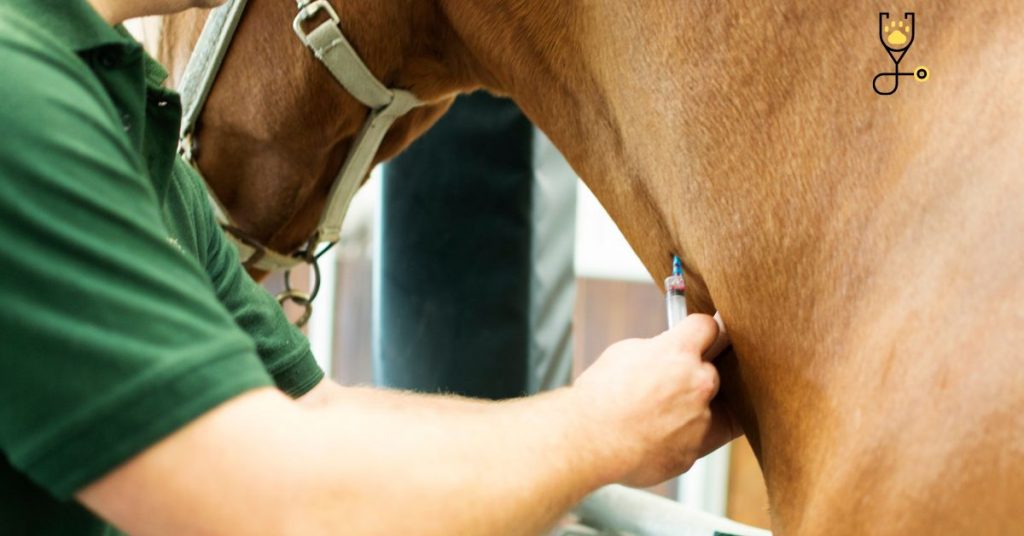It’s never an easy thing to have to make the decision to euthanize a horse, but sometimes it is the best thing for the animal. This guide will walk you through some of the signs that it may be time to say goodbye to your horse. Although it is a difficult decision, knowing when it is time will help ensure your horse receives the best possible care in its final days. Thank you for considering this guide, and please remember that always consult with your veterinarian if you have any questions or concerns.
the headings of the above topic are listed below
Signs it’s Time to Euthanize
When it comes to evaluating when it’s time to euthanize a horse, there are certain signs you should be aware of. Monitor your horse closely for any changes in behavior or appetite, and look for the following indicators:
• Loss of appetite or refusal to eat: If your horse stops eating or is no longer interested in food, it may be a sign that it’s time to consider euthanasia.
• Difficulty moving: If your horse has difficulty standing or walking, and can no longer move around comfortably, this could be an indicator that its quality of life has been compromised.
• Pain or discomfort: If your horse appears to be in pain or is having difficulty standing or lying down, it’s time to consider euthanasia.
• Changes in mobility: If your horse has difficulty rising from a lying or seated position, or is unable to lift its head when standing, this could be an indication that it’s time to let go.
• Significant changes in weight or body condition: Sudden weight loss or an inability to keep the weight on could be a sign that your horse is nearing the end.
• Increased depression: If your horse no longer responds to its usual activities, or doesn’t appear happy and content, it may be a sign of depression.

• A decrease in alertness and responsiveness to stimuli: If your horse is no longer as responsive to normal stimulation, or if it appears drowsy and lethargic, this could be a sign that it’s time for euthanasia.
• Refusal to stand in the presence of people: If your horse refuses to stand in the presence of people, it may be a sign that its quality of life has deteriorated.
• Increased respiratory rate: If your horse has an increased breathing rate and appears to be laboring for breath, this could be a sign that it’s time to consider euthanasia.
• Open wounds that will not heal with treatment: If your horse has an open wound that is not healing with treatment, it could be a sign that the animal is in pain and suffering.
Preparing for Euthanasia
Once you have decided that euthanasia is the best course of action for your horse, there are a few things to consider before the procedure. It’s important to discuss the situation with your veterinarian in order to ensure that everyone understands the process and any potential risks involved. You should also make sure you are prepared financially for the cost of euthanasia and its associated expenses, such as burial or cremation. Finally, it’s essential to be aware of any laws or regulations in your area regarding animal euthanasia.

Basic Dose Guidelines
-The type of drug used to euthanize a horse will depend on the size and condition of the animal. Generally, these are the guidelines for administering a euthanasia drug:
• Small horses or ponies (400 kg body weight or less): 40-50 mg pentobarbital sodium.
• Larger horses (400 kg body weight or more): 60-70 mg pentobarbital sodium.
• Foals: 10-20 mg pentobarbital sodium.
For most euthanasia procedures, the drug will be administered intravenously (IV). The IV route is usually the most efficient and humane way to euthanize a horse. Some horses can also be given intramuscular injections of pentobarbital sodium.
Once the drug has been administered, the horse will typically become unconscious within one to two minutes and die within 10 to 15 minutes.

After The Procedure
After your horse has been euthanized, it is important to take time to grieve and honor its memory. A memorial service can help you recognize and celebrate the life of your animal companion, as well as provide a space for comfort and support. If you have chosen to bury or cremate your horse, make sure that you have all the necessary permits and paperwork in order before doing so. Depending on the laws in your area, it may be possible to scatter ashes at a designated spot in nature or keep them in an urn. As with any difficult decision, make sure to reach out for help if you need it during this time.
Finally, take comfort in knowing that you did the best thing for your beloved companion and gave them peace when they needed it most. Thank you again for considering this guide, and we wish you strength during this time.
Farewells Should Not Be Difficult
Saying goodbye to a beloved animal can be one of the most difficult decisions you may ever have to make. But with thoughtful consideration, knowledge, and support from your veterinarian and other professionals, it’s possible to reach a decision that is best for both you and your horse. Remember: farewells should not be filled with guilt or regret; rather, they can be an opportunity to honor the life of your beloved companion and provide them with the peace they need in their final moments. We hope this guide has provided you with some helpful insights into making this difficult decision. Thank you for taking the time to consider it.
Conclusion
Euthanizing a horse is never an easy decision, but it can be the most humane and compassionate choice in certain situations. Taking the time to learn about the procedure and any potential risks involved will help you make an informed decision that’s best for both you and your animal companion. We hope this guide has been useful in helping you make this difficult decision. Thank you again for taking the time to consider it.
Goodbye, and may your beloved horse rest in peace.
Frequently Asked Questions
Q: What is the most humane way to euthanize a horse?
A: The most humane way to euthanize a horse is usually with an intravenous injection of pentobarbital sodium. This typically takes around 10-15 minutes, after which the animal will become unconscious and eventually die.
Q: How much does it cost to euthanize a horse?
A: The cost of euthanasia can vary depending on where you live and the veterinarian you use. However, it typically costs between $200 and $400 for the procedure itself, plus any associated services such as burial or cremation.
Q: Are there any laws or regulations regarding animal euthanasia in my area?
A: Yes, many areas have laws and regulations regarding animal euthanasia. It’s important to check with your local government to make sure you are complying with any relevant laws or regulations in your area.
Q: How do I know if euthanasia is the right choice for my horse?
A: Ultimately, it is up to you and your veterinarian to decide if euthanasia is the best option for your horse. You should consider the overall quality of life of the animal, its prognosis, and any other factors that might influence your decision before making a final choice.
Q: Is it possible to have a memorial service for my horse?
A: Yes, it is possible to have a memorial service for your horse. This can be a great way to honor the life of your companion and provide support and comfort during this difficult time. You should talk to your local funeral home or pet care provider about arranging such a ceremony.





